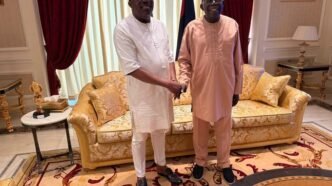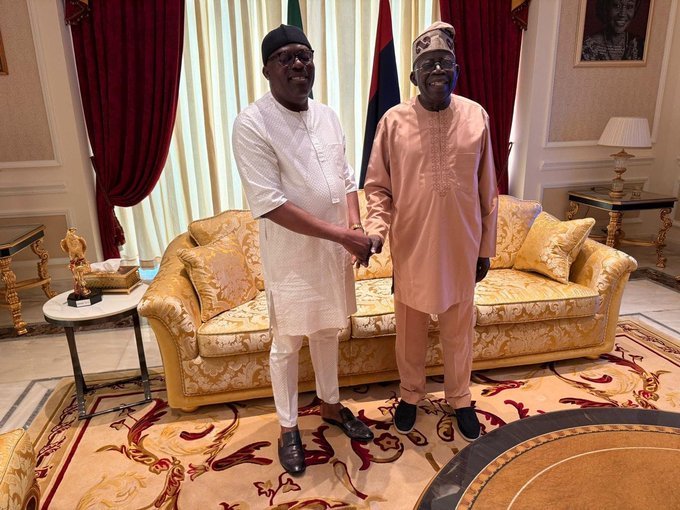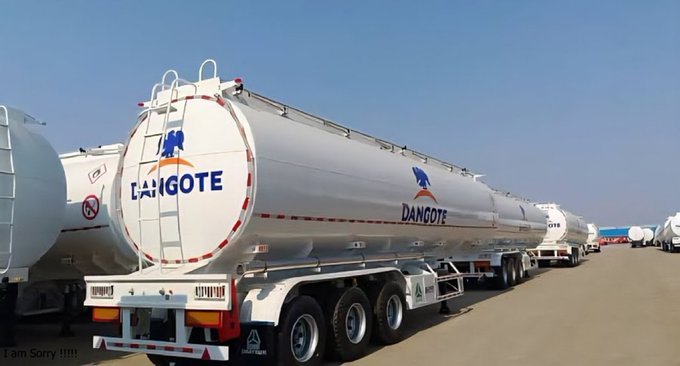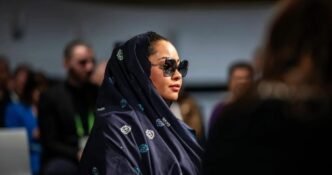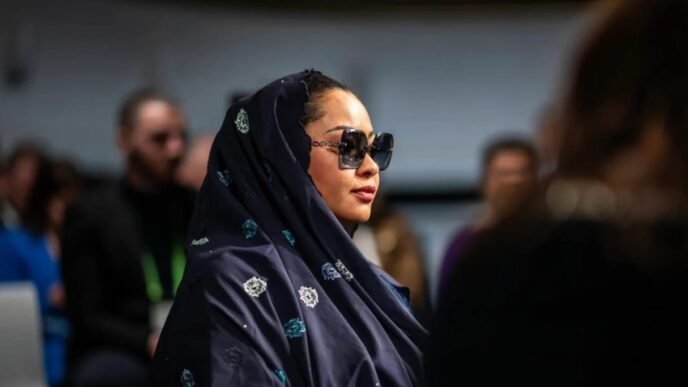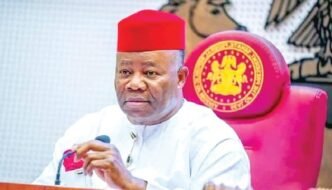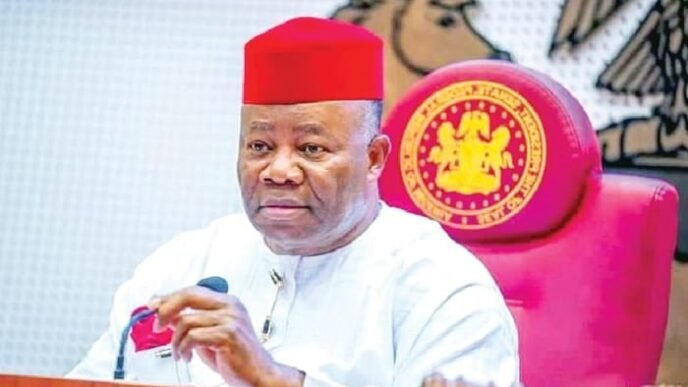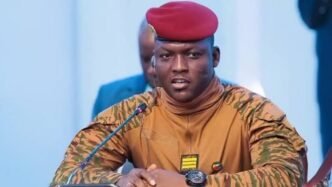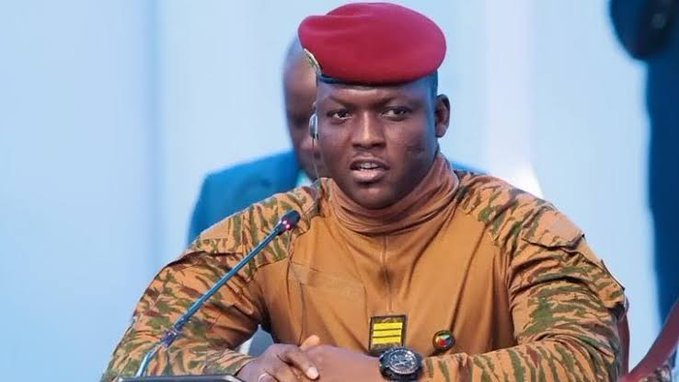The Governor of Rivers State, Sir Siminalayi Fubara, has shed light on his recent meeting with President Bola Ahmed Tinubu, revealing that the President offered him strategic advice on governance and leadership. Speaking to journalists shortly after the closed-door meeting at the Presidential Villa in Abuja, Governor Fubara described the encounter as both productive and reassuring, noting that President Tinubu encouraged him to focus on policies and initiatives that would strengthen unity, peace, and development in Rivers State.
The meeting, which comes amid heightened political discourse in the South-South region, is seen by many as a crucial step in reaffirming the working relationship between the federal and state governments.
A Meeting of Strategic Importance
Governor Fubara emphasized that the engagement was more than just a courtesy visit. He disclosed that President Tinubu gave him “fatherly advice” on how best to govern Rivers State in ways that align with the needs of the people while ensuring political stability.
“The President, in his wisdom, gave me guidance on governance, leadership, and how to stay focused on the things that truly matter for Rivers people,” Fubara told reporters. “He emphasized peace, inclusiveness, and ensuring that the dividends of democracy reach the grassroots.”
This revelation comes at a time when Governor Fubara continues to navigate the complexities of leadership in a state known for its robust political activity, diverse ethnic groups, and significant economic contribution to Nigeria’s oil wealth.
Rivers State at the Heart of Nigeria’s Economy
Rivers State is widely regarded as one of Nigeria’s most economically significant states, largely due to its oil and gas reserves, vibrant ports, and growing industrial base. The state is home to Port Harcourt, the oil capital of the country, and serves as a hub for multinational corporations, shipping companies, and service industries.
As such, governance in Rivers carries implications that go beyond the state itself, often shaping the national conversation around resource management, fiscal federalism, and infrastructure development. Observers note that President Tinubu’s advice to Governor Fubara underscores the central government’s recognition of Rivers State as a cornerstone of Nigeria’s economic stability.
Political Context
Governor Fubara assumed office in May 2023 following his election under the platform of the Peoples Democratic Party (PDP). His tenure so far has been marked by efforts to consolidate peace and foster development amid internal party dynamics and political competition.
Rivers State has long been a hotbed of political drama, often attracting national attention due to its strategic importance. By meeting with President Tinubu, a leader of the All Progressives Congress (APC), Governor Fubara signaled a willingness to bridge political divides in the interest of his people.
Political analysts believe the move reflects pragmatism. With federal allocations, security collaboration, and infrastructural projects tied closely to the Presidency, maintaining cordial relations with President Tinubu could prove critical for Rivers State’s progress.
Tinubu’s Advice: Governance Beyond Politics
While Governor Fubara did not go into detail about all aspects of the President’s advice, he made clear that Tinubu urged him to prioritize governance over politics. According to the Governor, the President encouraged him to embrace policies that would unify the people of Rivers, strengthen institutions, and ensure efficient service delivery.
“Mr. President told me to focus less on distractions and more on building lasting legacies for the people who entrusted me with their mandate. He reminded me that leadership is about service, and service must be transparent, accountable, and impactful,” Fubara explained.
Such advice is particularly relevant as Nigerian governors often face pressures from competing political interests, ethnic divides, and challenges in managing resources. Tinubu’s call for inclusiveness and stability resonates with ongoing calls for peace and unity in the Niger Delta.
Governance Priorities for Rivers State
Governor Fubara’s administration has already highlighted key priorities, which align closely with the advice given by President Tinubu. These include:
- Infrastructure Development – Expanding and rehabilitating roads, bridges, and public facilities to boost commerce and improve connectivity across the state.
- Security Enhancement – Collaborating with security agencies to maintain peace in the oil-rich state and safeguard lives and investments.
- Economic Diversification – Reducing dependence on oil by promoting agriculture, manufacturing, and small businesses.
- Youth Empowerment and Education – Expanding access to quality education and creating opportunities for young people through skill acquisition and entrepreneurship programs.
- Healthcare Improvement – Upgrading hospitals, primary health centers, and ensuring affordable access to medical services.
With Rivers being a major contributor to Nigeria’s GDP, Governor Fubara’s ability to deliver on these priorities will not only impact the state but also shape Nigeria’s overall economic trajectory.
Reactions From Rivers Stakeholders
Reactions to the Governor’s comments have been mixed but largely positive. Civil society groups in Rivers have welcomed the outcome of the meeting, saying it shows maturity and a willingness to collaborate with the federal government.
Chief Emmanuel Okoro, a political analyst in Port Harcourt, praised Fubara’s approach: “For years, Rivers State has been embroiled in political battles that sometimes overshadow development. This meeting signals that Governor Fubara is choosing diplomacy and pragmatism, which is a good sign for the people.”
On social media, Rivers residents expressed hope that the advice from President Tinubu would translate into improved governance and tangible results on the ground.
Tinubu’s Broader Engagement With Governors
President Tinubu has, since assuming office in May 2023, made it a priority to engage regularly with state governors across party lines. His approach, which emphasizes collaboration over partisanship, has been welcomed in many quarters. Analysts believe his meeting with Fubara is consistent with this strategy, aimed at strengthening national unity and ensuring that governance works for Nigerians irrespective of political affiliation.
Tinubu has repeatedly stressed that his administration’s success depends on synergy with state governments, particularly in areas such as security, infrastructure, and economic reforms.
Challenges Ahead for Governor Fubara
While the advice from President Tinubu provides a roadmap, Governor Fubara still faces significant challenges. These include:
- Managing Political Tensions within the PDP and among opposition figures.
- Addressing Youth Unemployment, a persistent issue in the state.
- Improving Security in areas vulnerable to oil theft, piracy, and cult-related violence.
- Ensuring Transparency in Revenue Use, given the state’s position as one of the highest earners from federal allocations.
Observers note that how the Governor navigates these challenges will define his legacy.
Conclusion
Governor Siminalayi Fubara’s acknowledgment that President Tinubu offered him guidance on “how best to govern Rivers State” highlights an important moment in Nigeria’s political landscape. It demonstrates the growing recognition that collaboration between federal and state governments is essential for sustainable development.
For Rivers State, the meeting signals a potential shift toward pragmatic governance, with a renewed focus on peace, inclusiveness, and service delivery. For Nigeria, it underscores the importance of dialogue and partnership in addressing national and regional challenges.
As Governor Fubara continues his tenure, Rivers people will be watching closely to see how he translates Tinubu’s advice into action. The coming months will reveal whether this meeting sets the stage for a new era of development and unity in one of Nigeria’s most critical states.

